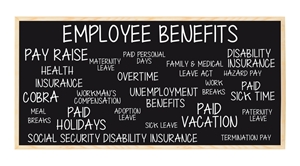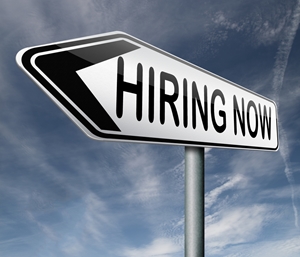
As presidential candidates on both sides of the political spectrum vie for who will be the next leader of the free world, it seems that many Americans aren't willing to take a leading role in how they monitor and provide for their good health and well-being, according to a recent poll.
Employee benefits serve as the financial tools workers use to pay for medical expenses when they're injured or under the weather. However, less than 1 in 3 insured Americans feels confident they know how to fully use these benefits in practice, based on a new survey conducted by Harris Poll. By way of comparison, that's more than the 1 in 4 who feel uncomfortable buying a home on their own and 15 percent who are uneasy about buying a car.
Much of consumers' anxiety over navigating the health insurance realm may have something to do with life's everyday stresses. For example, approximately 31 percent cited finances as often being overwhelming and 1 in 5 referenced work and family responsibilities as negatively impacting their ability to arrive at the proper health care decisions.
Health care viewed as one of U.S.' most pressing issues
With this being an election year, likely voters have been peppered with questions about what, in their view, is the country's most pressing problem. Health care is consistently ranked as one of the top areas of concern, though it has rarely been pinpointed as the biggest issue of them all. In February, roughly 3 percent more Americans cited the cost of health care as the U.S.' largest issue that needed to be addressed, according to Gallup – a sharp increase from a previous poll done in December.
Insurance premiums rose for many Americans in 2015, even though more people were able to access coverage, whether on their own, through the insurance exchanges established by the Affordable Care Act or the workplace. Close to 3 in 4 adults who pay all or some of their health insurance premiums say they're spending more today than they were last year, according to a separate survey also conducted by Gallup. Additionally, one-third said that their premiums have risen substantially
Justin McCarthy, a methodologist for the Washington, D.C.-based survey research firm, noted that some people are delaying medical treatment in order to avoid high out-of-pocket expenses.
"About a third say [health care costs] have led them to put off medical treatment for themselves or a relative," McCarthy said. "While they have become more amenable to the concept of the government being responsible for providing health care, Americans remain overall disapproving of the Affordable Care Act."
52 percent in favor, 44 percent oppose ACA
Since the ACA was signed into law, the health care reform law has been a highly partisan issue, with roughly equal amounts on either side being in favor and opposed. For the most part, though, there's been more negative sentiment than positive. The last time sentiment was fairly equal was back in 2012, with 48 percent approving and 45 percent against, based on previous Gallup polling. The gulf widened to its largest in late 2014, when 37 percent supported it and 56 percent were critics. In the latest tracking, a slight majority disapprove of the ACA at 52 percent and 44 percent stand against it in its present form.
The differences in opinion on the ACA couldn't be more stark than on the presidential election scene. Democrats like former Secretary of State Hillary Clinton and Vermont Senator Bernie Sanders say they would keep the health care law in place, but make some improvements where necessary. However, leading Republican presidential candidates like real estate mogul Donald Trump and Texas Senator Ted Cruz say they would repeal and replace the law that's colloquially known as ObamaCare.





